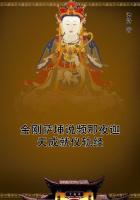In Pilate's Judgment Hall
In the judgment hall of Pilate, the Roman governor, Christ stands bound as a prisoner. About Him are the guard of soldiers, and the hall is fast filling with spectators. Just outside the entrance are the judges of the Sanhedrin, priests, rulers, elders, and the mob.
After condemning Jesus, the council of the Sanhedrin had come to Pilate to have the sentence confirmed and executed. But these Jewish officials would not enter the Roman judgment hall. According to their ceremonial law they would be defiled thereby, and thus prevented from taking part in the feast of the Passover. In their blindness they did not see that murderous hatred had defiled their hearts. They did not see that Christ was the real Passover lamb, and that, since they had rejected Him, the great feast had for them lost its significance.
When the Saviour was brought into the judgment hall, Pilate looked upon Him with no friendly eyes. The Roman governor had been called from his bedchamber in haste, and he determined to do his work as quickly as possible. He was prepared to deal with the prisoner with 724magisterial severity. Assuming his severest expression, he turned to see what kind of man he had to examine, that he had been called from his repose at so early an hour. He knew that it must be someone whom the Jewish authorities were anxious to have tried and punished with haste.
Pilate looked at the men who had Jesus in charge, and then his gaze rested searchingly on Jesus. He had had to deal with all kinds of criminals; but never before had a man bearing marks of such goodness and nobility been brought before him. On His face he saw no sign of guilt, no expression of fear, no boldness or defiance. He saw a man of calm and dignified bearing, whose countenance bore not the marks of a criminal, but the signature of heaven.
Christ's appearance made a favorable impression upon Pilate. His better nature was roused. He had heard of Jesus and His works. His wife had told him something of the wonderful deeds performed by the Galilean prophet, who cured the sick and raised the dead. Now this revived as a dream in Pilate's mind. He recalled rumors that he had heard from several sources. He resolved to demand of the Jews their charges against the prisoner.
Who is this Man, and wherefore have ye brought Him? he said. What accusation bring ye against Him? The Jews were disconcerted. Knowing that they could not substantiate their charges against Christ, they did not desire a public examination. They answered that He was a deceiver called Jesus of Nazareth.
Again Pilate asked, "What accusation bring ye against this Man?" The priests did not answer his question, but in words that showed their irritation, they said, "If He were not a malefactor, we would not have delivered Him up unto thee." When those composing the Sanhedrin, the first men of the nation, bring to you a man they deem worthy of death, is there need to ask for an accusation against him? They hoped to impress Pilate with a sense of their importance, and thus lead him to accede to their request without going through many preliminaries. They were eager to have their sentence ratified;for they knew that the people who had witnessed Christ's marvelous works could tell a story very different from the fabrication they themselves were now rehearsing.
The priests thought that with the weak and vacillating Pilate they could carry through their plans without trouble. Before this he had signed the death warrant hastily, condemning to death men they knew were not worthy of death. In his estimation the life of a prisoner was 725of little account; whether he were innocent or guilty was of no special consequence. The priests hoped that Pilate would now inflict the death penalty on Jesus without giving Him a hearing. This they besought as a favor on the occasion of their great national festival.
But there was something in the prisoner that held Pilate back from this. He dared not do it. He read the purposes of the priests. He remembered how, not long before, Jesus had raised Lazarus, a man that had been dead four days;and he determined to know, before signing the sentence of condemnation, what were the charges against Him, and whether they could be proved.
If your judgment is sufficient, he said, why bring the prisoner to me? "Take ye Him, and judge Him according to your law." Thus pressed, the priests said that they had already passed sentence upon Him, but that they must have Pilate's sentence to render their condemnation valid. What is your sentence?
Pilate asked. The death sentence, they answered; but it is not lawful for us to put any man to death. They asked Pilate to take their word as to Christ's guilt, and enforce their sentence. They would take the responsibility of the result.
Pilate was not a just or a conscientious judge; but weak though he was in moral power, he refused to grant this request. He would not condemn Jesus until a charge had been brought against Him.
The priests were in a dilemma. They saw that they must cloak their hypocrisy under the thickest concealment. They must not allow it to appear that Christ had been arrested on religious grounds. Were this put forward as a reason, their proceedings would have no weight with Pilate. They must make it appear that Jesus was working against the common law; then He could be punished as a political offender. Tumults and insurrection against the Roman government were constantly arising among the Jews. With these revolts the Romans had dealt very rigorously, and they were constantly on the watch to repress everything that could lead to an outbreak.
Only a few days before this the Pharisees had tried to entrap Christ with the question, "Is it lawful for us to give tribute unto Caesar?" But Christ had unveiled their hypocrisy. The Romans who were present had seen the utter failure of the plotters, and their discomfiture at His answer, "Render therefore unto Caesar the things which be Caesar's." Luke 20:22-25.















